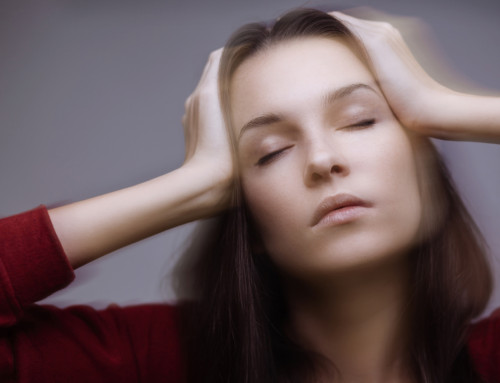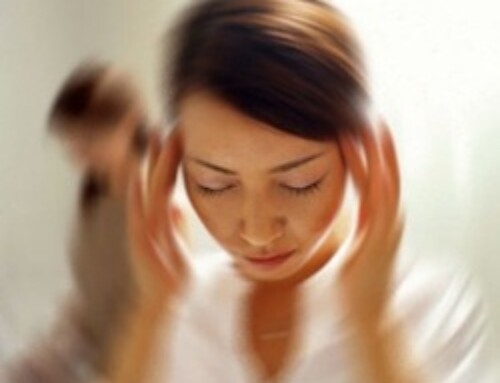Table of Contents
 Approximately 615,000 people in the USA have been diagnosed with Meniere’s disease, according to the National Institute on Deafness and Other Communication Disorders. In addition, as many as 50,000 new cases are being diagnosed every year. This puzzles the medical community as they cannot determine a reason for the surge in new cases. Research is continually being done to develop new ways to care for Meniere’s disease.
Approximately 615,000 people in the USA have been diagnosed with Meniere’s disease, according to the National Institute on Deafness and Other Communication Disorders. In addition, as many as 50,000 new cases are being diagnosed every year. This puzzles the medical community as they cannot determine a reason for the surge in new cases. Research is continually being done to develop new ways to care for Meniere’s disease.
No one is really sure why Meniere’s disease happens. It seems to hit those in the mid-life range (between the ages of 30 and 60). Meniere’s disease causes its sufferers significant challenges. It negatively impacts one’s life quality and can be quite debilitating if it becomes severe. It is imperative to find a way to cope with Meniere’s to improve symptoms and life quality.
Symptoms of Meniere’s Disease
Meniere’s disease is known for having the following symptoms.
- Vertigo: If you have ever had an overwhelming feeling that the environment around you was spinning, rotating, rocking, twisting, or flip-flopping, then you have experienced vertigo. The feeling may last for a few minutes to as long as a few hours. Your balance will be impacted and you must be very careful that you do not fall or have an accident. This feeling of imbalance can last a few days even after vertigo has gone away.
- Hearing loss: Very early on in Meniere’s disease, hearing loss occurs, especially with low tones. Some people have it only in one ear, whereas others have it in both. The progression of hearing loss occurs with time and may lead to permanent hearing loss.
- Dizziness: Less severe than vertigo, dizziness happens when you stand up, when walking, on an escalator, or going up and down stairs. Be sure to use many safety precautions because you can lose your balance and fall.
- Tinnitus: Tinnitus is a noise inside the ear of constant ringing, buzzing, roaring, whistling, chirping, hissing, or chirping. For some, this intensifies as the disease gets worse. It is not dangerous but is very distressing. Some medication can make it worse, such as aspirin, antibiotics, antidepressants, and cancer drugs.
- Nausea, vomiting, and other digestive problems: Nausea is very common in combination with vertigo. You may want to try sipping herbal teas or sucking on ginger lozenges to relieve nausea. Abdominal pain and discomfort, along with diarrhea may also happen.
- Pressure or congestion in the ear: This generally affects someone in one ear, but it can be in both ears.
- Nystagmus: Uncontrollable eye movements, or nystagmus, is when your eyes move quickly and without your control up and down, in circles, or side to side. If it accompanies Meniere’s disease, it is related to the abnormal function of the labyrinth of the inner ear responsible for sensing movement.

What You Can Do to Help Alleviate Symptoms
Here are a few ideas you can implement to try to alleviate some of the symptoms of Meniere’s disease.
- Reduce salt intake: Too much salt in your diet can increase fluid retention, exacerbating the symptoms of Meniere’s disease. Sodium impacts the levels of fluid the body contains. Try to limit your sodium intake to 1000 to 2000 mg per day. This equals ½ to 1 teaspoon. Spread out the consumption throughout the day.
- Avoid tobacco: Nicotine decreases the amount of blood getting to the inner ear by constricting blood vessels.
- Balance food and liquid intake: You should have equal amounts of food and liquid throughout the day, keeping your meals balanced with the same amount of both of these. Keep your eating habits consistent so as to stabilize inner-ear fluid levels.
- Limit caffeine: Even in small amounts, caffeine can make tinnitus louder and cause you to feel much worse.
- Avoid beverages and food with high sugar content: Things to avoid include soda, desserts, snacks, and fruit juices. Sugar causes the body to fluctuate in the volume of bodily fluids. With this being said, please note that it is not at all a good idea to replace sugary drinks with artificial sweeteners. This causes even greater issues with fluid levels and can have long-term negative effects on your health.
- Limit alcohol: Even very small amounts of alcohol can adverse effects by changing the amounts and composition of the fluids contained in the inner ear.
- Be aware of foods causing allergies or sensitivity: A study was performed showing how patients who used diet and a desensitization protocol according to their specific allergies saw an improvement in both allergy symptoms and Meniere’s disease symptoms. Also noted was that severity, frequency, and interference with everyday activities also got better.
A good idea to put this into practice is to try an elimination diet. Remove the following from your diet for a period of time and then introduce them back into your diet one at a time and notice how you feel with each one.
- Corn
- Eggs
- Alcohol
- Soy
- Gluten
- Dairy
- Sugar
- Peanuts
- Processed foods
Finding Relief for Meniere’s Disease
In addition to the above suggestion, a good place to begin seeking care for Meniere’s disease is by visiting an upper cervical chiropractor. An interesting link has been seen between Meniere’s disease and a misalignment in the bones of the upper cervical spine, particularly the C1 and C2 vertebrae. These bones are susceptible to misaligning because of their location and mobility, allowing the head a great range of motion. If they misalign, a number of problems can follow. For one thing, the brainstem becomes stressed and begins sending improper signals to the brain. The eustachian tube can also become stressed, and lesions can begin to form. In fact, it can take as long as 15 years for this kind of damage to manifest itself as Meniere’s disease.
We use a low-force correction to move this bone into place. This often results in the relief of Meniere’s symptoms, especially vertigo.
To schedule a consultation call 808-201-1324 or simply click the button below.
 If you are outside of the local area you can find an Upper Cervical Doctor near you at www.uppercervicalawareness.com.
If you are outside of the local area you can find an Upper Cervical Doctor near you at www.uppercervicalawareness.com.





